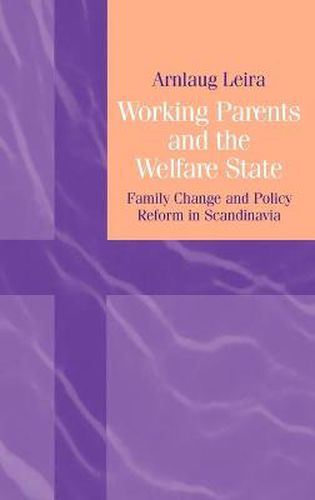Readings Newsletter
Become a Readings Member to make your shopping experience even easier.
Sign in or sign up for free!
You’re not far away from qualifying for FREE standard shipping within Australia
You’ve qualified for FREE standard shipping within Australia
The cart is loading…






The mass entry of women into the labour market, the decline of the male breadwinner norm and the rise of the dual-earner family have all profoundly transformed the societies of the Western industrialised world. This book argues that childcare has become increasingly ‘defamilised’ or collectivised as mothers have joined the labour market, causing significant impact on welfare policies. As a result, the complex relationship between family change and policy reform calls for a rethinking of the relationship between the welfare state, labour markets and working parents. Rather than concentrating on the changing models of motherhood, Leira advocates the need to consider the effects of the gendered division of work and welfare on fathers’ opportunities to be supported as carers for children. Her analysis incorporates important new empirical data from Finland, Denmark, Norway and Sweden.
$9.00 standard shipping within Australia
FREE standard shipping within Australia for orders over $100.00
Express & International shipping calculated at checkout
The mass entry of women into the labour market, the decline of the male breadwinner norm and the rise of the dual-earner family have all profoundly transformed the societies of the Western industrialised world. This book argues that childcare has become increasingly ‘defamilised’ or collectivised as mothers have joined the labour market, causing significant impact on welfare policies. As a result, the complex relationship between family change and policy reform calls for a rethinking of the relationship between the welfare state, labour markets and working parents. Rather than concentrating on the changing models of motherhood, Leira advocates the need to consider the effects of the gendered division of work and welfare on fathers’ opportunities to be supported as carers for children. Her analysis incorporates important new empirical data from Finland, Denmark, Norway and Sweden.